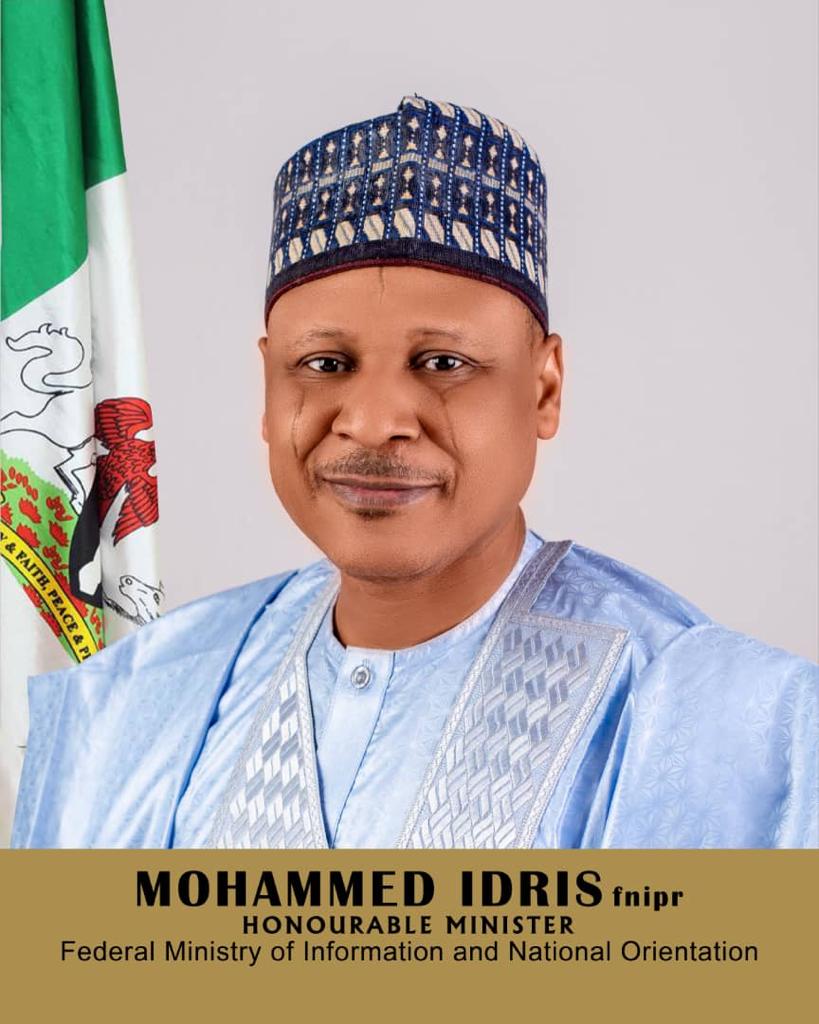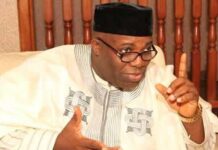Participants at Moday’s Colloquium in honour of Prof Abubakar Momoh, acclaimed professor of Political Theory have called for “Economic Restructuring” to ensure that the resources of the country are deployed to genuinely empower the people.”
“The elite is now deceiving the people that all we need to do to make Nigeria a better place is by “Restructuring” the polity. But you can’t talk about “Political Restructuring” without talking about “Economic Restructuring””, said Human Rights Activist, Mr Femi Falana, a Senior Advocate of Nigeria (SAN). He counseled that the working people and their allies must intervene in the raging discourse of the national question to prevent it from being hijacked by “strange bed fellows” arguing that if you give more powers to Governors without “democratization” of the country’s wealth and resources, it’s going to be terrible.
Falana who was chairman of the event held at the main auditorium of Lagos State University, (LASU), Ojo said, “There’s no Governor who’s not more powerful than the President because they decide who becomes a Councilor to Senator. Local Government system has collapsed, they have taken over the funds of the local governments, they also have security vote, they have become monsters”.
According to a report on the colloguium by Tony Iyare, Chairman, Media and Publicity Committee, in spite of the shenanigans of the elite, Falana argued that the people must not shy away from the debate. “Let us join the debate by raising critical questions. Can we restructure the economy by taking oil blocs from individuals and give them to the states and LGs?”, he quipped.
Reflecting on the neo liberalist policies of the government which has seen the sale of vital public assets sold at pittance to friends and cronies, Falana said, “The government says there’s no money but it has set up Development and Agric banks which will end up giving loans to the same comprador bourgeoisie that has shared the resources of this country amongst its rank and held back its promise”.
Contending that the “Socialist Alternative” has been on the agenda since the 1944 in Nigeria when students of King’s College, Lagos called a meeting that led to the formation of the National Council of Nigeria and Cameroons (NCNC), Prof Omotoye Olorode who spoke on the main theme titled, “Nigeria In Crisis: Rethinking Economic Policies And Posing Alternative Developmental And Political Options”, argued that the ascendancy of US President Donald Trump, UK Prime Minister, Theresa May after the Brexit vote and President Emmanuel Macron in France has sounded the death knell on “Social Democracy” in Europe and America.
“That you had Bernie Sanders and Jeremy Corbyn campaigning respectively in the US and the UK on the basis of a Socialist platform and making some significant strides is some pointer that we have no other alternative”, said Olorode, former chairman Academic Staff Union, Obafemi Awolowo branch.
“There’s nothing to re-think about the Socialist Alternative, Social Democracy has collapsed in Europe”.
“Neo-liberal policies have been at the heart of all the crises of Nigeria”, he said. “The elite sold the banks, roads, airports, power stations, airlines etc. They cancelled centralized feeding in the tertiary institutions and sacked 10,000 workers from the Catering Department. That’s why I laughed when the same elite said it wanted to feed the students in the primary and secondary schools”.
“We are now confronted by political, economic, social and cultural disaster. We need therefore to withdraw from social engineering for the ruling class and build a genuine mass movement”.
Reeling out the names of many radical activists who had passed on since the death of Itiem Kongwai like Bagauda Kaltho, Chima Ubani, Emma Ezeazu, Bala Mohammed, Ola Oni, Festus Iyayi, Baba Omojola, Mokwugo Okoye, Eskor Toyo, Abubakar Momoh and Funmi Adewunmi, he said it was a matter for regret that that the radical movement was fast losing all those activists produced from the students movement in the golden era of the 70s and 80s.
“What is further depressing is that the condition under which they were nurtured and thrived is no longer there”.
Arguing that the drift to the business of Non Governmental Organisations (NGOs) by many activists which he said were created by the US as part of the process of whittling down the radical movement, Olorode said “we need to re-think the NGO business and concentrate on re-building the radical movement”.

Reminding the audience about Momoh’s radical scholarship which was very critical about “neo-liberalism”, Issa Aremu, general secretary of National Union of Textiles, Garments and Tailoring (NUTGT) said, “We need to change our Constitution to make it possible for people to contest elections wherever they lived arguing that nobody knew where Momoh came from as he was at home everywhere”.
Arguing that Momoh’s death on May 29th, 2017 followed by that of another scholar of Industrial Relations, Prof Funmi Adewunmi two weeks later, is some indication that “death does not keep a calendar”. “It shows that anyone of us will die one day, what’s important is the legacy that we leave behind”, he said.
It is Aremu’s view that “Momoh’s death was a loss of a patriot and big voice for Nigeria particularly at a time when it is under attack. The best tribute we can pay to Momoh is to keep the flag of patriotism and pan-Africanism flying”.
Ngozi Iwerre, executive director of Community Life Project who was miffed that the calls to rejig the mass movement have always been like a revolving door each time any activist died, cautioned that “we cannot build a mass movement without linking up to Civil Society Organizations (CSOs)”.
“How are you going to be building a broad based organisation without these organisations?”, she queried.
President, Academic Staff Union of Universities (ASUU), Prof Biodun Ogunyemi said the passing of Momoh, former dean, Faculty of Social Sciences at LASU has posed a challenge to the entire Labour movement. “Momoh has always been with us despite his appointment at the Electoral Institute. At every consultative meeting, Momoh was there, he was a rallying point. He’s widely acclaimed as an unrepentant advocate of Socialist and radical scholarship.”, he said. “Losing such an indefatigable scholar, shall we mourn or cry? Weep not for Momoh for he came, he saw and he conquered”.
Said the ASUU President, “Momoh was born into royalty but he chose to be with the people. He had all the trappings of joining the ruling class but he chose to be with us. Momoh demonstrated leadership and was humble enough as a follower. Momoh made sacrifices, he won’t even make transport claims. He had more than eight students in his personal scholarship”, which in his view underscored Momoh’s commitment to humanism. Decrying the rising cost of education which he said is now being priced beyond the reach of many students and their parents, Ogunyemi said, “ASUU was ready to work with Labour, civil society organisations and other allies to defend the rights of our people to education”.
Former President, National Association of Nigerian Students (NANS), Mr Lanre Arogundade who spoke on Students’ Movement in Retrospect: The Way Forward”, said it may be unfair to characterize “his era in the students movement as golden while the present era as not golden”.
“My view is that at every point in time, let’s situate the struggle within specific context”. Arguing further, Arogundade who’s the Coordinator, International Press Centre said, “In those days, it took 48 hours for the campus to be shut but these days just mere disagreement with the outcome of a students’ election can lead to the shutting of the campus. In those days, it was a battle of ideas while these days, elections are fought with bullets”.

All Photos in this report culled from Tony Iyare’s Facebook page
Alluding to the tenure of Adeola Soetan as president, Obafemi Awolowo University Students Union, he said, “cultists were sponsored to deal with students activists”, meaning that the latter day students movement are confronted by threats which were not prevalent in our time. Not too warm to the situation when many campus unions are working at cross purposes, Arogundade called for all campus unions to be on the same page to achieve their goals.
President of the University of Ibadan Students Union, Mr Aderemi Ojo who said the chord between his union and ASUU, SANU and NASU attracted the ire of the university management which later clamped down on those unions said, “we need to encourage organizations to speak against the oppression of the common people”.
Two prominent scholars, Prof Brown Onuoha of the University of Lagos and Prof Abolade Adeniji who spoke on “National Question Amidst Rising Ethnic And Political Tensions”, presented varying perspectives of the issue. Onuoha argued that the Nigerian federation was peculiar as its ethnic constituents were never consulted when the Northern and Southern Protectorates were cobbled together in 1914 for purely economic reasons. He said that rather than address the fears of the minority groups as contained in the report of the Willinks Commission set up in the 50s, the military compounded the minority question by not only criminalizing leaders of the agitations in the oil rich Niger Delta but hanging Ken Saro Wiwa and eight other activists of the Movement for the Survival of Ogoni People (MOSOP).
Adeniji however said, “Nigeria is a beautiful country and we all need to do whatever we can to keep it together”. Contending that the 20th Century has not been fair on small countries, he said, “Every nation has its own problems, the problems of Nigeria cannot be solved today. We all have our unfulfilled dreams. Nnamdi Kanu may make all the noise but don’t be surprised if he says he wants to be governor of Imo state”.
Referring to the report of the National Conference held in 2014 that came up with some recommendations which should be adopted as a working document, Adeniji said, “we can have a conversation on the basis of that working document”. The Colloquium which was attended by the Vice Chancellor of LASU, Prof Lanre Fagbohun, the former Vice Chancellor of University of Abuja, Prof Nuhu Yakubu, former ASUU President, Dr Dipo Fashina and Momoh’s younger brother, Mr Farook Momoh among many others, featured tributes and solidarity songs by Labour, students and other civil society organisations.


